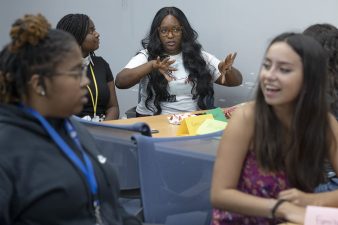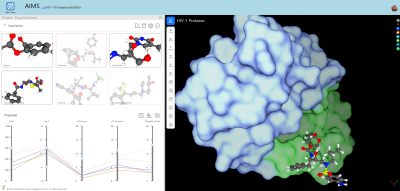SHE (Summer Healthcare Experience) in Oncology
-
Project Description
PROJECT NARRATIVE The Summer Healthcare Experience (SHE) in Oncology is a virtual, multi-institutional STEM enrichment program for high school students, with a mission to increase participation of women from underrepresented backgrounds in the cancer biomedical workforce. The curriculum offers hands-on research experience, career exploration, mentorship, and leadership training, drawing strategically from the unique strengths and resources of multiple cancer centers. This proposal details plans to expand SHE in fundamental ways including year-round programming, formalized support for program alumni, and rigorous evaluation to validate and strengthen the SHE program model for expansion to new institutional cohorts nationwide.
-
Abstract
The Summer Healthcare Experience (SHE) in Oncology is a virtual, multi-institutional STEM enrichment program for high school students, with a mission to increase participation of women from underrepresented backgrounds in the cancer biomedical workforce. The curriculum offers hands-on research experience, career exploration, mentorship, and leadership training, drawing strategically from the unique strengths and resources of five of the nation’s top cancer centers: University of Chicago Medicine Comprehensive Cancer Center, University of Kentucky Markey Cancer Center, University of Michigan Rogel Cancer Center, University of Pennsylvania Abramson Cancer Center, and the University of Texas at Austin Livestrong Cancer Institutes. Programming is delivered collaboratively and synchronously across the five sites, connecting trainees to an expansive network of peers, mentors, and opportunities in cancer research and care. The program’s multi-institutional structure also creates rich context for the study of social determinants of health, barriers to care, and other factors undermining cancer health equity within the centers’ respective catchment areas (and participants’ respective communities, including rural, urban, racially diverse, and socioeconomically challenged). In summers 2021 and 2022, 169 participants completed a pilot version of the SHE program, 99% of whom identified as female and 65% as underrepresented in the sciences. Pilot outcomes reflect significant gains in trainees’ scientific knowledge, biomedical career awareness, and confidence and sense of belonging in STEM. SHE trainees also report that the program enhanced important generalizable skills including critical thinking, self-directed learning, and the ability to communicate scientific concepts. This proposal details plans to expand SHE in fundamental ways including year-round programming, formalized support for program alumni, and rigorous evaluation to validate and strengthen the SHE program model for expansion to new institutional cohorts nationwide.





